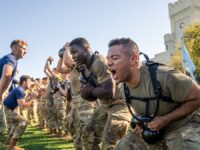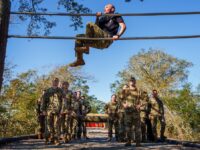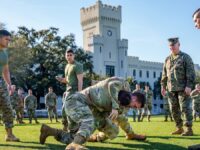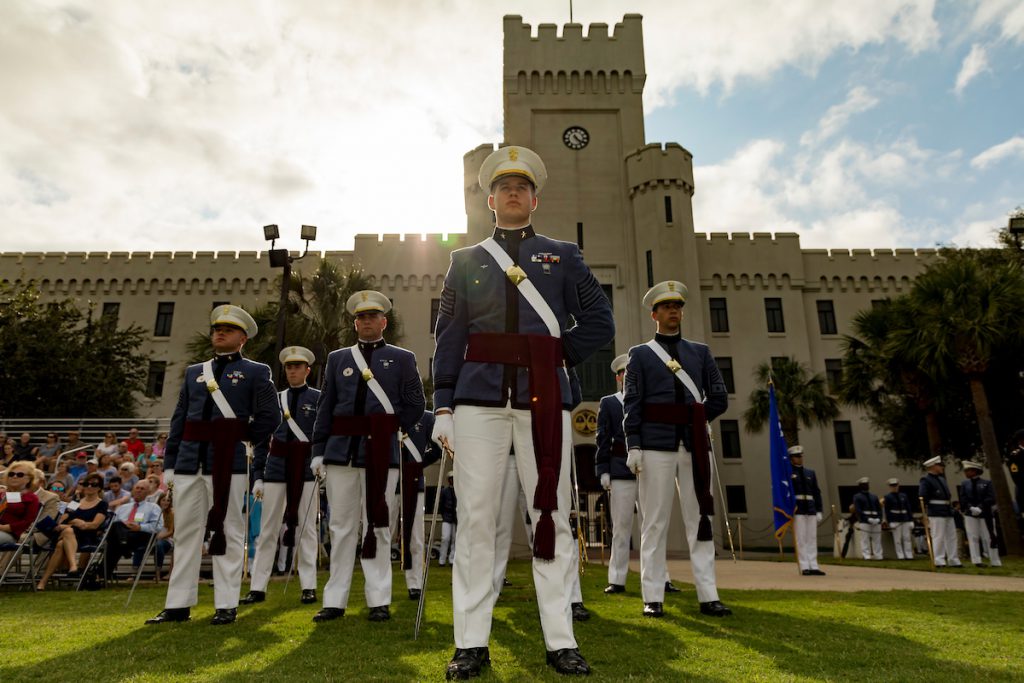
During the 2017-18 academic year, The Citadel is commemorating 175 years of educating principled leaders. Leading the South Carolina Corps of Cadets during this milestone year is Regimental Commander Dillon Graham.
Through what is essentially a leadership laboratory at The Citadel, cadets lead cadets in a conventional military culture. Every cadet has the opportunity to earn positions of leadership during their four years at The Citadel. There are dozens of positions at all class levels, but the highest position is regimental commander.
Graham’s position, responsible for leading about 2,400 cadets, is a demanding, but rewarding job. He is accountable for the health, welfare, discipline, and academic proficiency of the entire Corps.
Graham was born in Bluefield, West Virginia, but his home away from school is Myrtle Beach, South Carolina, where his family resides. He is a Summerall Guard and the former Junior Sword Arch commander. Graham is a biology major and is attending The Citadel on Air Force scholarship. He plans to earn his commission as an Air Force officer in May and to eventually attend medical school with the goal of becoming a flight surgeon.
The following interview with Cadet Graham took place in the fall of 2017:
LM: If you were to create a slogan for your life, what would it be?
DG: If I were to create slogan for my life, it would be to “never give up.” Throughout my life, I have surmounted many obstacles that have made me realize the importance of moving forward with focus.
LM: Share one quote that inspires you
DG: “Pain is temporary. It may last for a minute, or an hour, or a day, or even a year. But eventually, it will subside. And something else takes its place. If I quit, however, it will last forever.” –Lance Armstrong
LM: As a child, what did you wish to become when you grew up?
DG: When I was a child, I aspired to be an astronaut or a doctor. I hope to fulfill my dream of becoming a physician while I am serving with the Air Force.
LM: If you were a candy bar, which candy bar would you be and why?
DG: If were a candy bar, I would be a Snickers. “You’re not you when you’re hungry.” I love food and I’m certainly not me when I’m hungry. One of the four pillars of The Citadel is physical fitness. Good nutrition is a part of that and I encourage cadets not to miss meals and to take care of themselves so that they can excel in class and meet our physical training requirements.
LM: Part of our leadership learning involves learning to serve first before we can learn to lead. Describe a real-life situation where you applied this?
DG: When I was younger, my friends and I were playing by a dock near the water. A bully pushed a girl who couldn’t swim into the water, and they all walked away laughing. I jumped in the water and made sure she got out and was safe. That’s not the kind of thing I would usually discuss.
LM: Who influences you the most?
DG: Besides God, that would be my mother. She is a strong influence on me and has a strong work ethic, working to make ends meet for us.
LM: Why did you choose The Citadel?
DG: I had a mentor growing up who influenced me to become like him in my development. He was a Citadel grad.
LM: What is the hardest part about being the regimental commander?
DG: I think that hardest part about being the regimental commander is doing everything I can to make our institution stronger as we move into a changing future.
LM: What do you consider your greatest achievement? Why?Citadel cadet Logan Miller
DG: Moving past adversity that I faced earlier in my life. I now know that I can get over any obstacle.
LM: What advice would you give the freshmen in the Corps?
DG: The advice I would give cadets who are freshmen is to never give up. If you do, you will regret it for the rest of your life. Make the most of your time here by getting involved in everything we have to offer here. Don’t sit on the bench and be a benchwarmer. Get in the game and make a change.
LM: Describe your leadership style.
DG: I would describe my approach as servant leadership. I try to empower others to accomplish tasks related to their goals and things they are passionate about. This style spreads like wildfire−people begin taking initiative and holding themselves accountable for their work and for those they command. It is the best way to drive progress.
LM: What lessons have you learned here thus far?
DG: The Citadel has taught me that I can’t, and shouldn’t, try to do everything on my own. Constantly being around others and receiving their input leads to much better thinking, a more positive morale, and better results.
LM: What is important in your life right now?
DG: My family and friends are important to me. Setting myself up for the future and creating the life I have imagined for myself is also very important to me. Focusing on others allows me to find what I’m passionate about and everything will fall right into place.

 Stephanie Fye named first-ever director of advising at The Citadel
Stephanie Fye named first-ever director of advising at The Citadel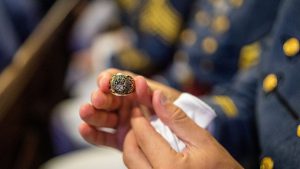 Citadel alumni make rings a reality for deserving cadets
Citadel alumni make rings a reality for deserving cadets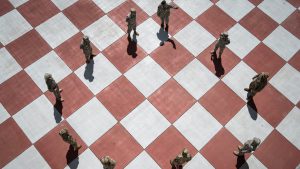 First small group of cadets return to campus
First small group of cadets return to campus